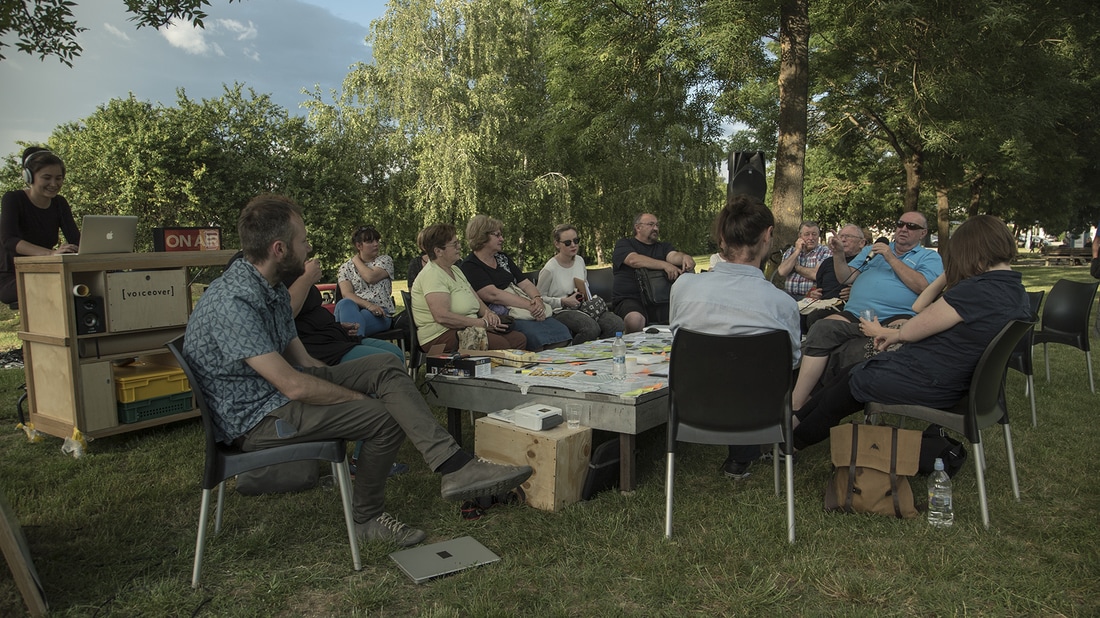The nation has decided, our votes have been cast and the UK will be leaving the European Union. The winning side has presented us with a new future. That is democracy. The losers must now make the best of it and be kind to those whose choices were not our own. Yet the choice we were handed, a choice driven by political power play, was a simple binary choice, one that had no space for nuance or subtlety. Neither side recognised the cultural dimension nor the shared heritage at the heart of EU policy making.The remain voice in the arts was strong with 96% of the members of the Federation of Creative Industries for ‘remain’ for reasons of trade, free movement, regional support, sector specific funding and IP protection. Across the Channel Culture Action Europe called for its UK friends to continue to ‘help shape the European Project’.
Projects built on trust
Two days before the vote, ISIS Arts was in the Slovenian capital Ljubljana for a partners meeting with 20 or so cultural organisations and artists from Corners, a platform supported by a major Creative Europe grant to bring together artists and communities on the edges of Europe. Our British artists with their fellow European colleagues move freely between countries without visas or work permits – they can spend a few days or more, earn a few euros and move on to the next project. They can choose to sell their work without punitive trade tariffs and benefit from joint planning and practice across borders. Together we have all built a complex, enquiring project built on trust, mutual risk and above all a generosity of spirit.
We voted to remain because working collectively is better than working alone. Europe is better today because of this. Not only because there have been no wars between member states but because together we have made it greener and cleaner, we have invested in research, in development, in citizens rights and we have generously put in resources to share with those who need most.
Our place in Europe feels downgraded; our cultural ties loosened, our futures divergent. We hope that we can preserve as much of the spirit of collaboration and cultural cross-fertilization that has been the driving force of our continent and our union for so long.
Now on..
None of us know where we will be in 12 months and what kinds of deals we can strike. But we do know what there is to lose. Will what we get be better, fairer, kinder?
As the rawness wears off we must strive to salvage what we can of what we had. So many of our cultural institutions and universities will be impacted by this and we must hold a Brexit government to account, monitoring the impact on cultural exchange and opportunities for development, and calling for replaced funding as we lose it.
This is not what we wanted, But if we are to have two years of negotiations, it is crucial that these negotiations include the arts and culture and that our voices are collectively loud and strong.
This article was published in A-n.
Projects built on trust
Two days before the vote, ISIS Arts was in the Slovenian capital Ljubljana for a partners meeting with 20 or so cultural organisations and artists from Corners, a platform supported by a major Creative Europe grant to bring together artists and communities on the edges of Europe. Our British artists with their fellow European colleagues move freely between countries without visas or work permits – they can spend a few days or more, earn a few euros and move on to the next project. They can choose to sell their work without punitive trade tariffs and benefit from joint planning and practice across borders. Together we have all built a complex, enquiring project built on trust, mutual risk and above all a generosity of spirit.
We voted to remain because working collectively is better than working alone. Europe is better today because of this. Not only because there have been no wars between member states but because together we have made it greener and cleaner, we have invested in research, in development, in citizens rights and we have generously put in resources to share with those who need most.
Our place in Europe feels downgraded; our cultural ties loosened, our futures divergent. We hope that we can preserve as much of the spirit of collaboration and cultural cross-fertilization that has been the driving force of our continent and our union for so long.
Now on..
None of us know where we will be in 12 months and what kinds of deals we can strike. But we do know what there is to lose. Will what we get be better, fairer, kinder?
As the rawness wears off we must strive to salvage what we can of what we had. So many of our cultural institutions and universities will be impacted by this and we must hold a Brexit government to account, monitoring the impact on cultural exchange and opportunities for development, and calling for replaced funding as we lose it.
This is not what we wanted, But if we are to have two years of negotiations, it is crucial that these negotiations include the arts and culture and that our voices are collectively loud and strong.
This article was published in A-n.


 RSS Feed
RSS Feed